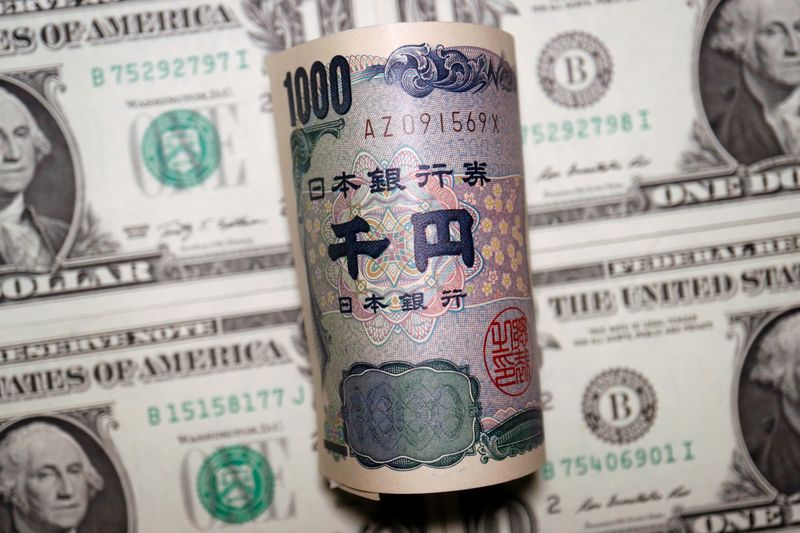By Leika Kihara and Tetsushi Kajimoto
Japan is ready to take action to address "clearly excessive volatility" seen in the yen, the country's top currency diplomat said on Thursday, issuing the strongest warning to date after the currency plunged to 24-year lows.
Aside from verbal intervention, Japan has several options to stem excessive yen falls. Among them is to directly intervene in the currency market, selling dollars and buying up large amounts of yen.
The precipitous slide in Japan's currency has run so far and fast it's spooking big investors, and some are already cutting bets that it will decline further, anticipating policymakers may soon step in to try and arrest the freefall.
Below are details on how yen-buying intervention could work, the likelihood of this happening as well as challenges:
WHEN DID JAPAN LAST CONDUCT YEN-BUYING INTERVENTION?
Given the economy's heavy reliance on exports, Japan has historically focused on arresting sharp yen rises and taken a hands-off approach on yen falls.
Yen-buying intervention has been very rare. The last time Japan intervened to support its currency was in 1998, when the Asian financial crisis triggered a yen sell-off and a rapid capital outflow from the region. Before that, Tokyo intervened to counter yen falls in 1991-1992.
WHAT WOULD PROMPT TOKYO TO BUY YEN AGAIN?
Currency intervention is costly and could easily fail given the difficulty of influencing its value in the huge global foreign exchange market.
That is one key reason it is considered a last-resort move, which Tokyo would greenlight only when verbal intervention fails to prevent a free fall in the yen. The speed of yen declines, not just levels, would be crucial in authorities' decision on whether and when to step in.
Some policymakers say intervention would only become an option if Japan faces a "triple" threat -- selling of yen, domestic stocks and bonds -- in what would be similar to sharp capital outflows experienced in some emerging economies.
WHAT COME NEXT AFTER VERBAL WARNINGS?
Before directly stepping into the market, Japanese authorities traditionally conduct "rate checks," a practice where the central bank officials call up dealers asking for the price of buying or selling yen.
The move will be a strong sign that actual intervention is close. Authorities will take such steps in hope that the move alone would scare market players enough to influence yen moves to their favour.
HOW WOULD ACTUAL INTERVENTION WORK?
When Japan intervenes to stem yen rises, the Ministry of Finance issues short-term bills to raise yen which it can then sell in the market to weaken the Japanese currency's value.
If it were to conduct intervention to stop yen falls, authorities must tap Japan's foreign reserves for dollars to sell in the market in exchange for yen.
In both cases, the finance minister will issue the final order to intervene. The Bank of Japan will act as an agent and execute the order in the market.
WHAT ARE THE CHALLENGES?
Yen-buying intervention is more difficult than yen-selling.
Japan's foreign reserves stand at $1.33 trillion, the world's second largest after China's and likely comprised mostly of dollars. While abundant, reserves could quickly dwindle if huge sums are required to influence rates each time Tokyo steps in.

That means there are limits to how long it can keep intervening, unlike for yen-selling intervention - where Tokyo can continue issuing bills to raise yen.
Currency intervention would also require informal consent by Japan's G7 counterparts, notably the United States if it were to be conducted against the dollar/yen. That is not easy with Washington traditionally opposed to the idea of currency intervention, except in cases of extreme market volatility.